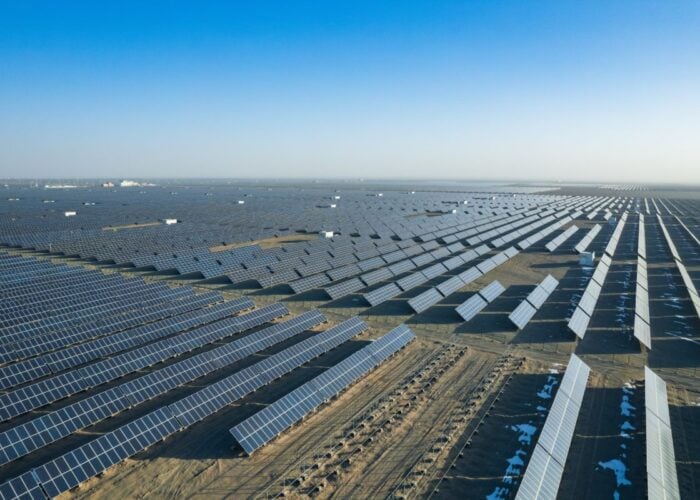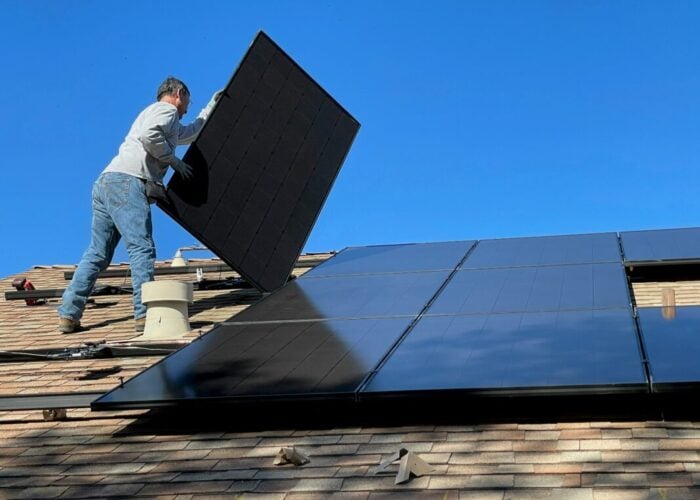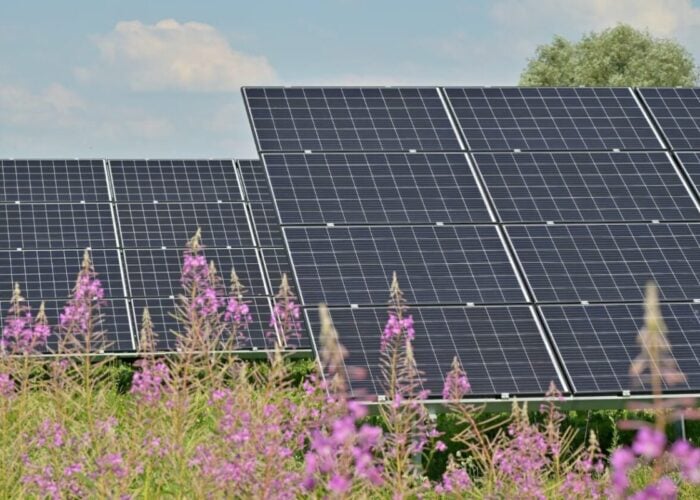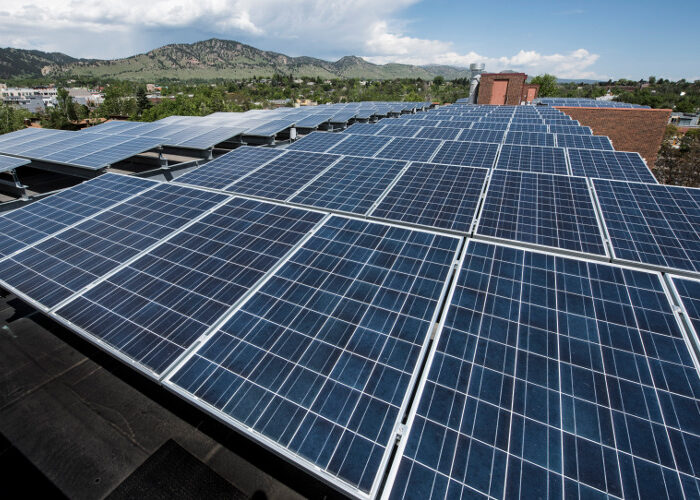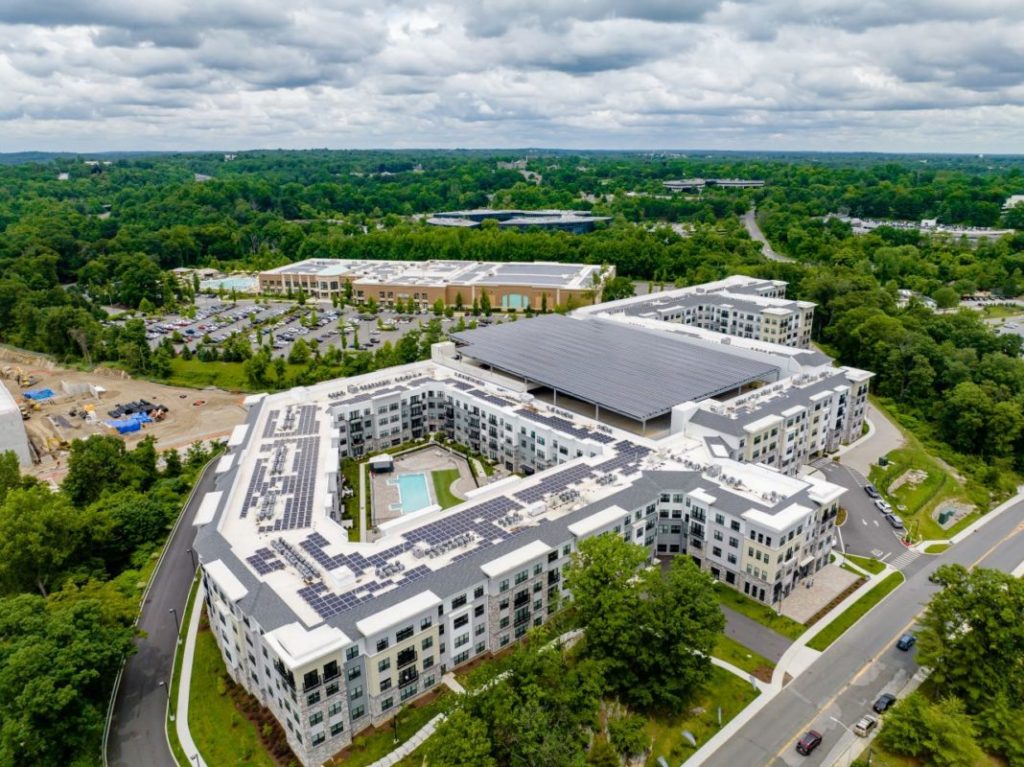
California governor, Gavin Newsom, has vetoed a bill that would have allowed schools and apartment buildings to use self-consumption of solar PV.
Authored by senator Josh Becker, Senate Bill (SB) 1374 was supposed to accelerate local solar adoption and revert a prior decision from the California Public Utilities Commission (CPUC) that prevented schools and apartment buildings, among others, to be able to use solar PV built on their properties.
Try Premium for just $1
- Full premium access for the first month at only $1
- Converts to an annual rate after 30 days unless cancelled
- Cancel anytime during the trial period
Premium Benefits
- Expert industry analysis and interviews
- Digital access to PV Tech Power journal
- Exclusive event discounts
Or get the full Premium subscription right away
Or continue reading this article for free
The bill was aimed to revert the CPUC decision that forced customers of multiple meters on the same property to sell their self-generated solar capacity to utilities at low rates, while buying it back at higher rates, according to Becker.
Newsom requested that the CPUC revise—no later than 1 July 2025—electric rate tariffs for customers of multi-residential and non-residential buildings, including schools, with solar PV systems installed on their property to allow for account-level netting. In its veto to SB 1374, Newsom argued that “this bill would increase the amount that most customers would pay for their own electric service to provide a rate subsidy to certain customers, and public schools, that install solar PV systems on their property.”
“In rejecting Senate Bill 1374, California misses a big opportunity to help schools lower their energy costs,” said Edson Perez, California lead at industry association Advanced Energy United. “This bill would have empowered schools to maximise solar and storage investments, crucial for reducing energy costs that could have been reinvested back into classrooms, and fostered more learning opportunities for students.”
This is the latest setback for solar PV in the state of California in the past few years. Earlier this year the CPUC passed a utility-backed programme for community solar that is expected to add much less PV capacity than would have been added through a plan proposed by the Coalition for Community Solar Access (CCSA). CCSA’s programme was supported by a broad coalition of environmental justice groups, ratepayer advocates, labour and the building industry association.
On the residential segment, the implementation of California’s net energy metering 3.0 is not only expected to slow down the growth of added capacity in 2024, but led to the loss of 17,000 jobs in the state in 2023, according to trade association the California Solar and Storage Association (CALSSA).
“California should be in the golden age of solar, but our state’s regulators—backed by powerful utilities that fear solar competition—are intent on halting California’s clean energy progress,” said Bernadette Del Chiaro, executive director at CALSSA.
Del Chiaro added: “By vetoing SB 1374, governor Newsom reaffirmed the CPUC’s shortsighted decision. It is yet another step in the wrong direction and sign that California still is not serious about being a worldwide leader in affordable clean energy.”
Newsom passes bidirectional EV bill
On the same day as Newsom vetoed SB 1374, the Californian governor passed bill SB 59, which will allow electric vehicle (EV) owners to use their EV batteries to power their homes.
With this legislation that allows EVs the use of bidirectional charging, California follows the steps of Maryland, which was the first US state to pass legislation pertaining to vehicle-to-grid charging, requiring utilities to allow EVs with bidirectional chargers to connect to the distribution grid.
“SB 59 will accelerate the transition to bidirectional charging so that EVs can provide clean energy to homes, slash utility bills, and stabilise the grid,” said Senator Nancy Skinner, who backed the bill.
During a senate committee in April 2023, Skinner called for all EV manufacturers to make bidirectional charging possible, allowing the batteries to be used as energy storage devices for homes or businesses.
“Bidirectional capabilities in BEVs have the potential to improve customer energy reliability, resiliency and demand management during electric grid stress events, while supporting our state’s transition to zero-emission transportation,” wrote Newsom when he signed SB 59. The bill will take effect on 1 January 2025.



